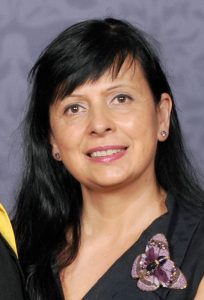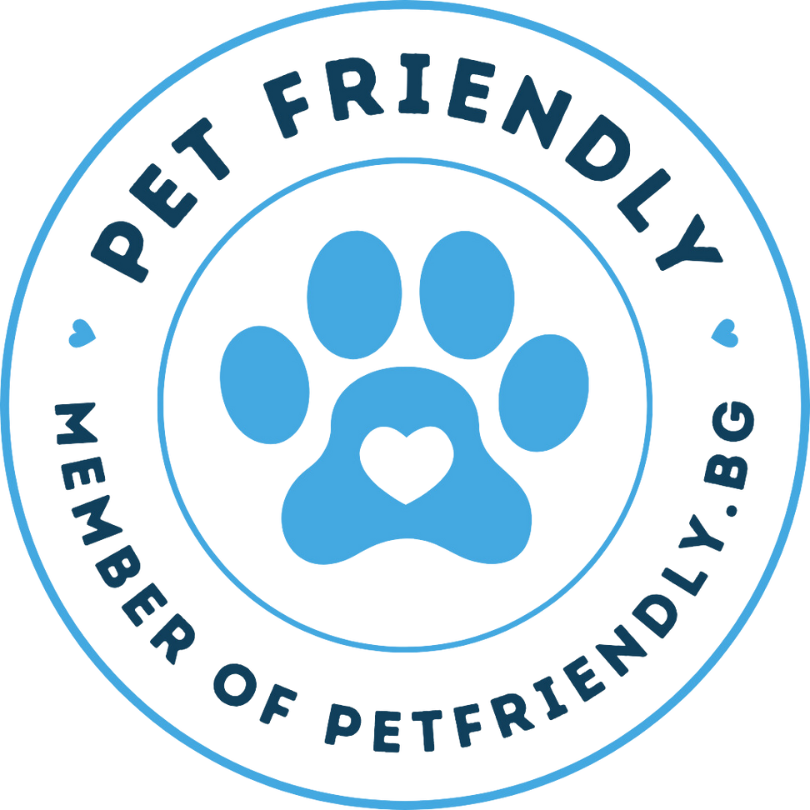National parks in Bulgaria are territories with a protected status in view of their priceless natural wealth. They are exclusive state property, and the activity there is carried out according to the law on protected areas and a number of other international treaties. National parks in Bulgaria are: Rila, Pirin and Central Balkan. The management of the parks is carried out by relevant directorates in compliance with certain general principles:
- No hunting is allowed;
- It is not allowed to use natural resources for commercial purposes /wood, medicinal plants, mushrooms, fruits/;
- Motorized activities and vehicles are not permitted outside the tourist areas;
- Expansion of tourist areas is not allowed;
- Flying below one hundred meters above the mountain is not allowed;
- New construction is not permitted;
- The expansion of the existing network of routes and the opening of new places for sports are not allowed;
- No intervention is allowed in case of natural disasters, unless there is a direct threat to roads, routes or buildings;
- A sufficiently large territory, left to natural processes without any intervention, must be determined;
The territory of the national park is subject to certain zoning, which limits or allows human activity. With the highest status is the reserve zone, in which all human activity is prohibited in order to guarantee the tranquility and natural development of natural processes and ecosystems.
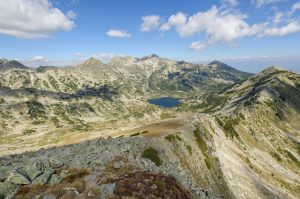
In Pirin, the reserves are: Bayovi dupki – Jindjeritsa and Yulen; in Rila: Parangalitsa, Central Rila Reserve, Ibar and Skakavitsa, in Stara Planina: Boatin, Tsarichina, Kozya Stena, Steneto, Stara Reka, Jendema, Severen Jendem, Peeshti skali and Sokolna. Hiking and scientific work on the marked routes are allowed in the zone for the limitation of human impact. The following are areas that, to varying degrees, allow human activity, the development of sports and recreational projects, fishing, herbalism and fruit gathering, etc.
Scientific, research and educational work is stimulated in the national parks.
Park officials and security guards are responsible for enforcing the rules of the national park. They are in charge of a designated security area, wear insignia clothing and carry firearms. They have the right to issue acts of violations to park visitors who do not follow the rules of behavior in the protected area.
What types of sports can be developed on the territory of the national park?
Spa complex Ruskovets in Dobrinishte is close to Pirin National Park and the two popular entrances to it: park area Bezbog with approach from Dobrinishte and park areas: Vihren and Damianitsa with approach from Bansko.
The most popular tourism in Pirin is hiking, with a share of over 70% of all visits to the park. It takes place mainly in the summer months /95%/, when the mountain opens its gates favorably. In addition, appropriate tourist infrastructure has been built in the park in all its areas, which stimulates the dispersion of the tourist flow and the reduction of tourist erosion. Of course, the park areas remain the most popular: Vihren, Bezbog, Demyanitsa and Bayovi dupki.
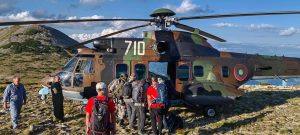
Hiking requires preparation to avoid accidents. The perception of the national park as an urban park is a serious problem. Mountains are becoming more accessible with the abundance of information about them on the Internet, geographic information systems and the flooding of the online space with challenging and delightful photographs of sunrises and sunsets, natural landmarks and routes. But still important are the several irrevocable postulates for movement in the mountains: good equipment, good physical preparation, a companion on the trails, respect for nature and knowledge of its whims. Presumptuous tourists are the most frequent “customers” of the Mountain Rescue Service.
Good to know
The most numerous summer accidents occur in the alpine part of the mountain. In case of emergency, the Mountain Rescue Service maintains a 24-hour central post on telephones: 1470 and 02 963 2000. It is recommended that anyone planning a trek in the mountains has mountain insurance. It covers the response to the incident by the PSC and any medical expenses.
Mountain insurance amounts can be defined as symbolic.
Depending on the insurance coverage, they start from BGN 3 per person for three days and BGN 30. for a year. All insurance companies offer online forms for mountain insurance, making the service easily accessible. Against this background, we indicate the costs of the PSS in the event of an accident in the mountains: responding to an accident in the mountains in the summer costs BGN 557, and on a ski slope in the winter – BGN 400, organizing an action to search for a tourist is BGN 724, and in the case of an avalanche – BGN 955, transportation from the mountain starts at BGN 160.
2023 marks the 90th anniversary of the founding of the Mountain Rescue Service in Bulgaria. The service’s team includes 530 well-trained lifeguards, most of whom are volunteers, and only 47 of them are full-time workers. The main bases of PSS are in:
- Pirin – base Bansko, phone 0749 8 81 32 or 0887 100 241
- Rodopi-base Studenets (Pamporovo), phone: 0309 58336 or 0887 100 245
Rila – base Borovets, phone: 07503 2450, 0887 100 243
- Vitosha – Base Aleko, tel. 02 967 11 55 or 0887 100 239
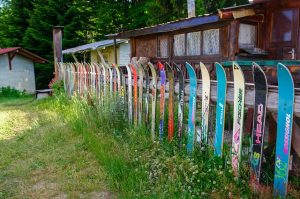
The rescuers are organized in 32 detachments, having posts in the most risky places in the Bulgarian mountains. The rescue squad of Dobrinishte has posts at the Gotse Delchev and Bezbog huts, headed by Tsvetan Pchelin. The rescue squad of Bansko has a post at the Vihren and Demyanitsa huts, at Razlog – at the Yavorov hut. The rescuers from Sandanski have an operational area on the southern slopes of Pirin and the popular Sinanitsa hut.
According to information from the PSS in 2023. there is a 30% increase in incidents in the high part of the mountains with the trend increasing.
The laws of the mountain
Although a mountainous country, the majority of Bulgarians live in large cities. The way of life away from nature limits the acquisition of knowledge about it. Distance from nature and underestimation of its essence, as well as one’s own capabilities, poses a risk to health and life. Therefore, if you do not go at least once a month on the mountain terrain, it is better to engage a mountain guide for your mountain experience. “Mountains and People” is the association of mountain guides in Bulgaria. Its mission is to train professionals in this field and to develop mountain tourism in Bulgaria.
The tips of the mountain guide! Before you go to the mountains:
- Choose a route and means of transportation (on foot, on skis, by bike, on snowshoes) according to your personal mountaineering experience, abilities and physical fitness. Do not overestimate yourself, move at a moderate pace, without overloading;
- Collect detailed information about the meteorological situation;
- Notify a loved one of your intention, direction, time of departure and return;
- Charge your cell phone, but don’t rely on technology. It is good to have knowledge of orientation by natural signs and strictly follow the mountain routes;
- Don’t go alone!
- Get mountain insurance.
Preparation for the transition:
- Collect detailed information about the desired route, JPS applications, tourist map, compass;
- Shoes are very important! They should be tall, ankle-protective, waterproof, with a non-slip grip and of course well-designed.
- Regardless of the season, follow the three-layer rule to keep your body well-tempered. The clothes should be warm and waterproof, windbreakers and mandatory spare clothes in the backpack. Bright colors are recommended, with which you will be noticed from afar;
- Equip yourself with specialized equipment: ice crampons, scree and rock faces, skis, snowshoes, poles, whistle, flashlight, pocket knife. It’s a good idea to learn the SOS light signal, a match, a borine and a newspaper for kindling;
- The seasons in the mountains are different and extreme, you must take this into account;
- Prepare a first aid kit: with a bandage, rivanol, oxygen water in case of abrasions, medicine for temperature and in case of vomiting, preparations against mosquitoes and insects, allergen, etc./;
- Food: high energy, nuts, fruits, electrolyte fluids.
During the hike:
- Follow the markings strictly;
- Leave early and move only in daylight. Take a good account of the duration of the transition and do not forget to add the return time;
- Avoid driving in fog and reduced visibility;
- Watch for signs of dehydration, which is too dangerous;
Be especially careful with children!
- Children are expansive and can quickly exhaust all their energy, tire themselves out imperceptibly without showing signs of fatigue;
- If you carry very young children in a backpack, where they are immobilized for a long time, the risk of cramps, frostbite, general hypothermia or overheating, burning and dehydration is quite high.
- Make sure kids are properly equipped and remember they don’t have the endurance and resilience of adults!
What are the recommended fees for mountain guides:
- BGN 150. per day for hiking trips with groups of up to 12 people;
- BGN 160. per day for bike tours with groups of up to 8 people;
- BGN 190. – ski tour.
Love the mountain and enjoy its beauty without risk!
We are waiting for you in Ruskovets for a mountain spa vacation

